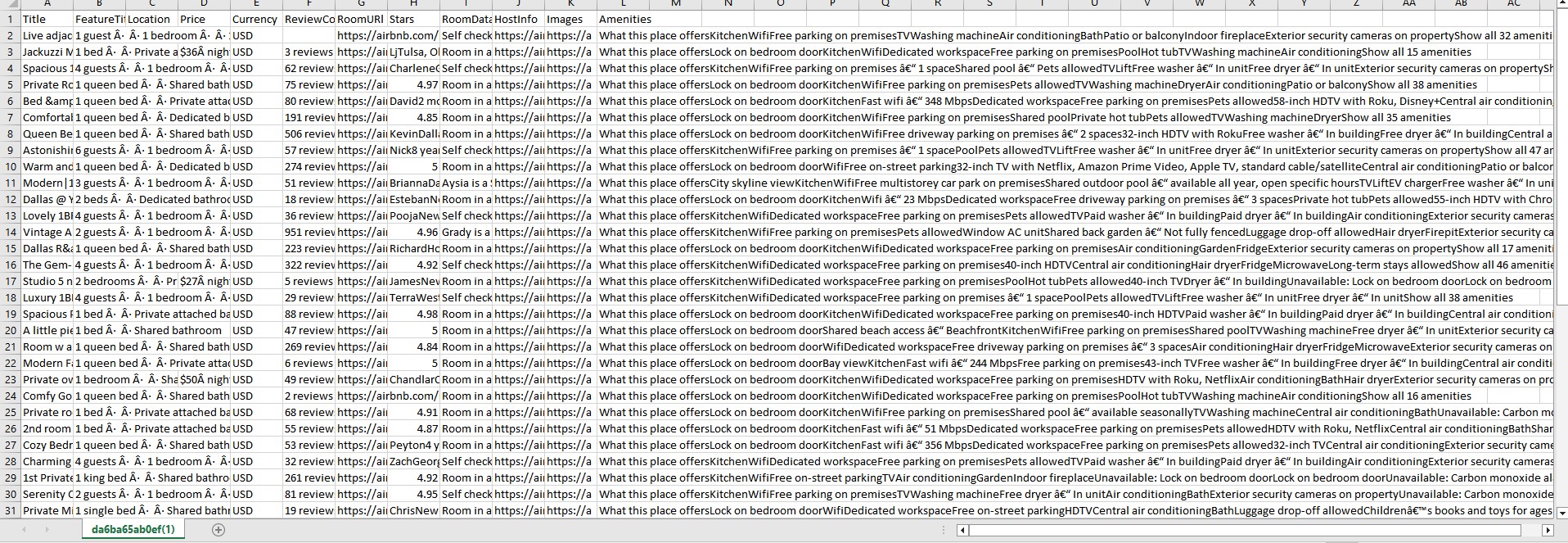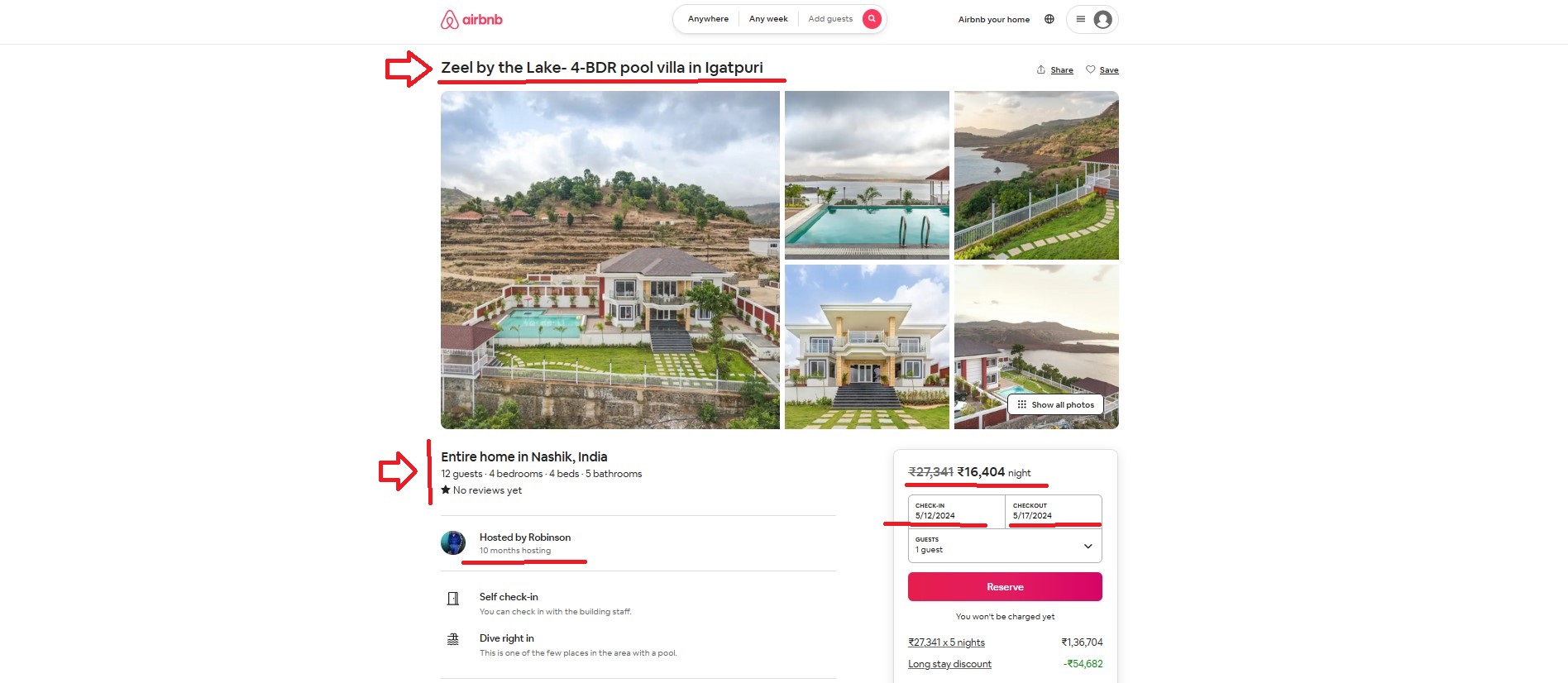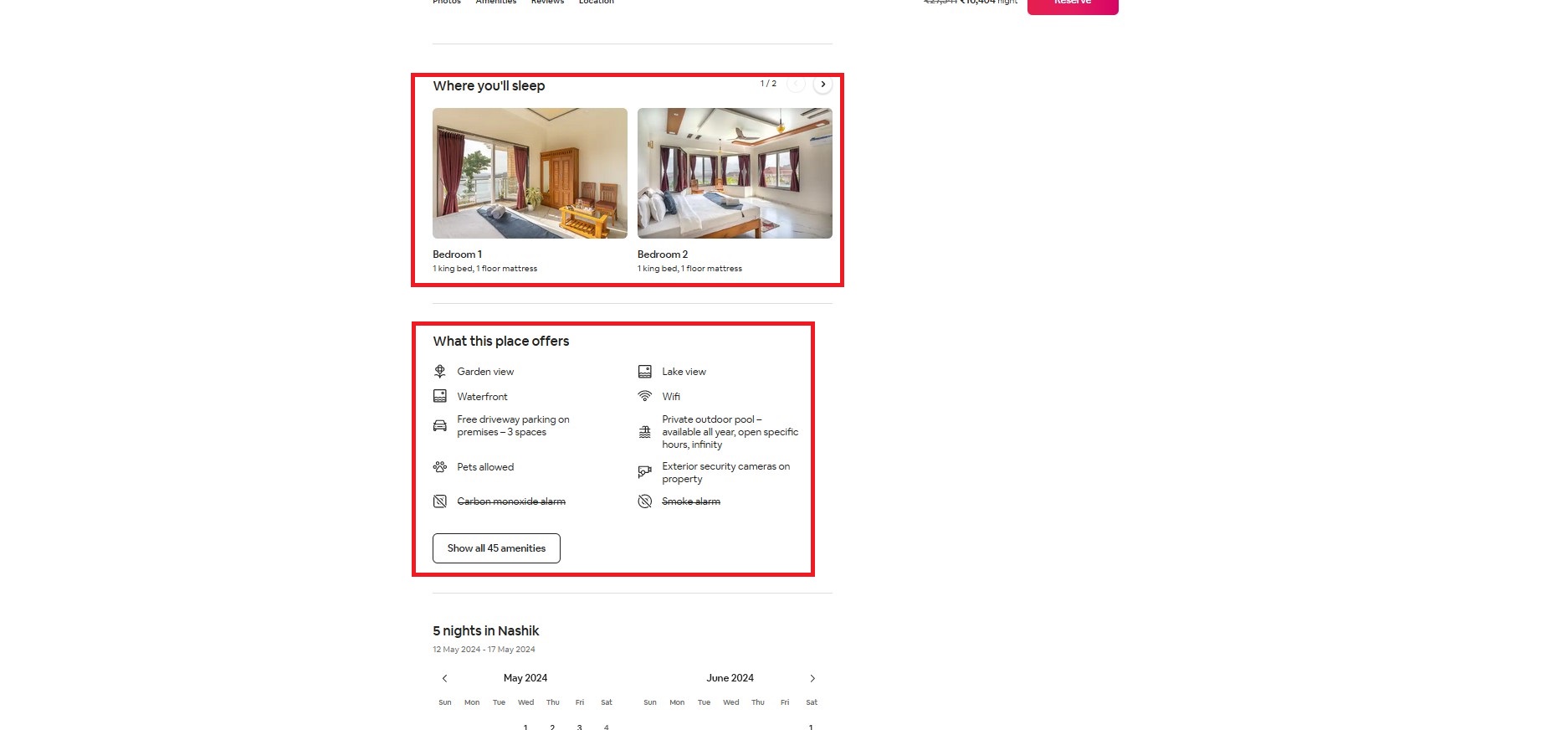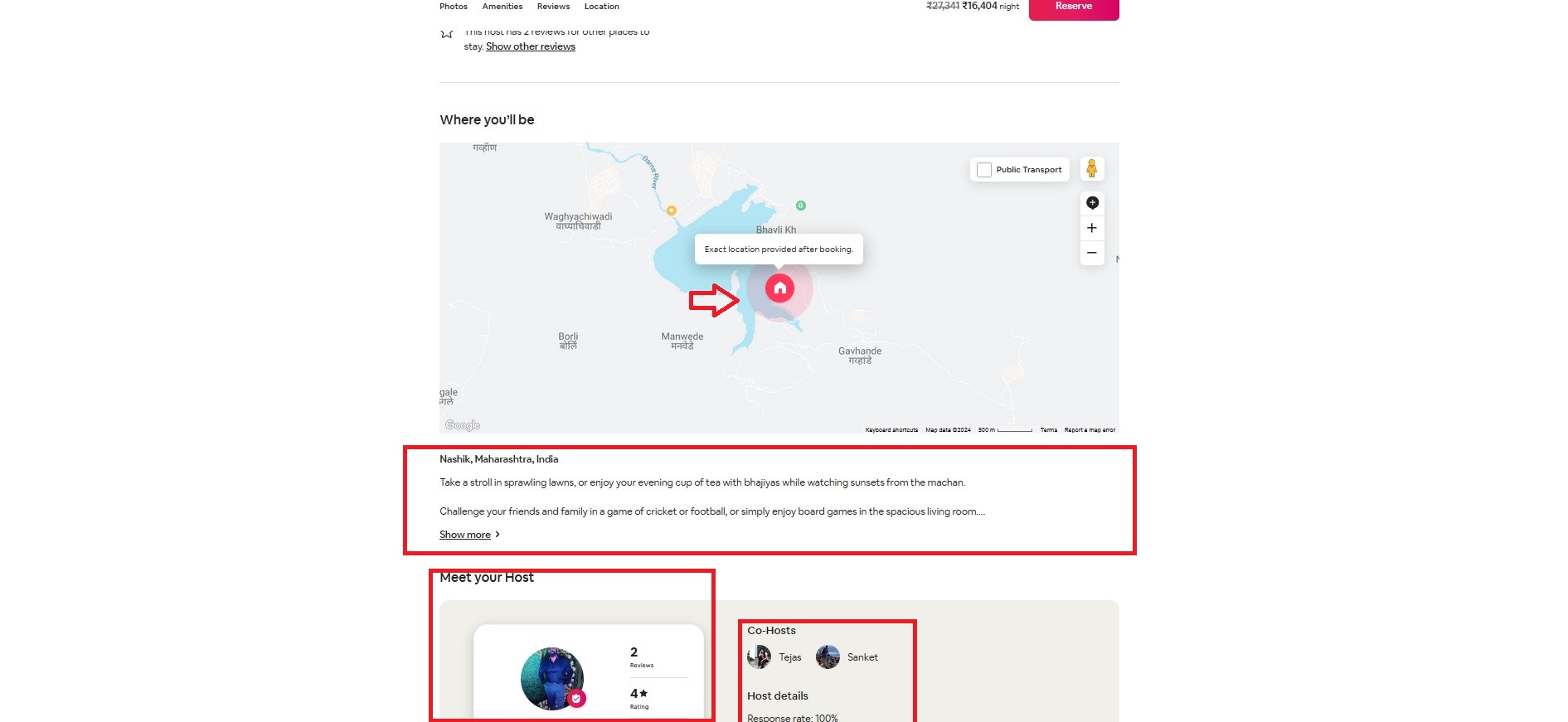Airbnb Rooms Scraper
By / / No Comments
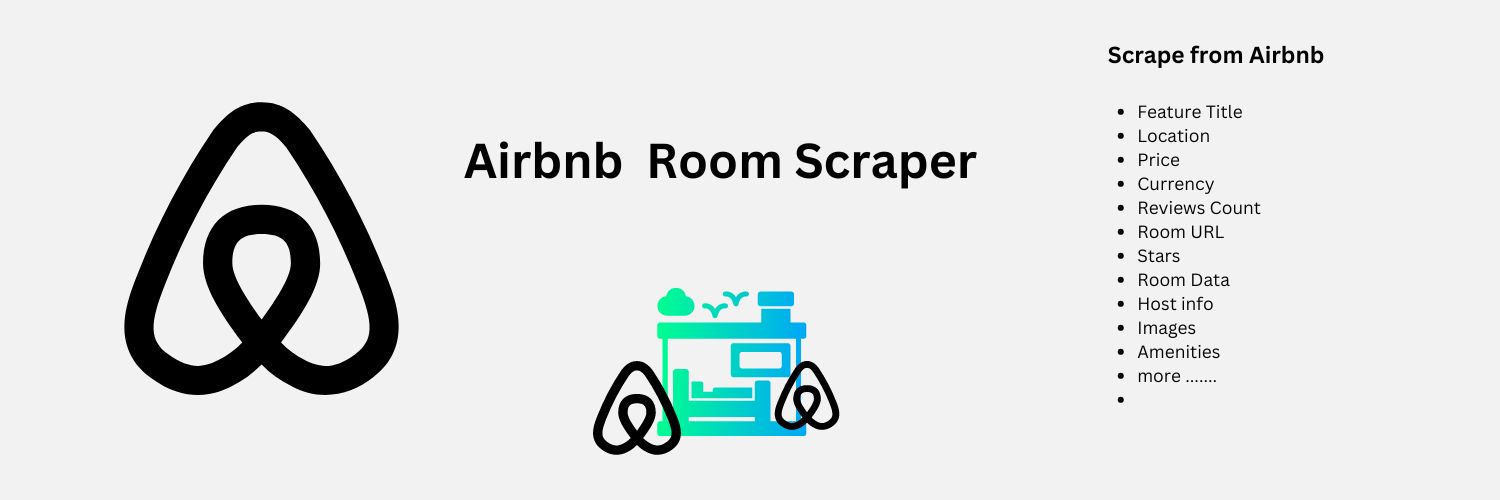
Table of Contents
ToggleAirbnb Rooms Scraper
Airbnb Rooms Scraper is a software tool designed to automate the process of collecting data from Airbnb listings. Essentially, it accesses the Airbnb website and extracts information about available rooms, properties, prices, and other relevant details. This data can then be used for various purposes such as market research, comparison shopping, or analysis.
The scraper works by simulating the actions of a human user navigating the Airbnb website, but it does so much faster and with higher accuracy. Users can customize the scraper to target specific criteria, like location, price range, amenities, and availability dates, ensuring that the extracted data meets their specific needs.
Using Airbnb Rooms Scraper offers several benefits. Firstly, it saves a significant amount of time by automating the data collection process. Instead of manually browsing through numerous listings, users can quickly gather the information they need in a fraction of the time. Additionally, it’s cost-effective as it allows users to gather data from a large number of listings without the need for manual labor or expensive market research services. Moreover, the data obtained through the scraper is highly accurate, reducing the risk of errors and inconsistencies that may occur with manual data entry.
How Does Airbnb Rooms Scraper Work?
Airbnb Rooms Scraper operates by accessing the Airbnb website and extracting specific data points from the listings displayed. It simulates the actions of a human user navigating the site, but at a much faster pace and with higher accuracy. The scraper can be customized to target particular criteria, such as location, price range, amenities, and availability dates, ensuring that the extracted data meets the user’s specific requirements.
- Accessing the Website: The scraper begins by accessing the Airbnb website through a web browser or API (Application Programming Interface).
- Navigating Listings: Once on the website, the scraper navigates through the various listings available. It may start from a particular search page or category, depending on the user’s preferences.
- Extracting Data: As it navigates through the listings, the scraper extracts specific data points such as property details, room descriptions, pricing information, amenities, location, availability dates, and more. It collects this data from the HTML code of the web pages.
- Customization: Users can customize the scraper to target specific criteria, such as location, price range, room type, or any other preferences they may have. This ensures that the extracted data meets their specific needs.
- Storing the Data: The extracted data is then stored in a structured format, such as a database or spreadsheet, for further analysis or use.
- Iterating Through Pages: In cases where there are multiple pages of listings, the scraper will iterate through each page, continuing to extract data until all relevant listings have been captured.
- Handling Dynamic Content: The scraper may need to handle dynamic content, such as pop-up windows or infinite scrolling, to ensure that all relevant information is captured.
- Compliance and Safety Measures: It’s crucial for the scraper to comply with Airbnb’s terms of service and any applicable laws and regulations regarding web scraping and data privacy. Safety measures may also be implemented to avoid detection and blocking by the website’s security systems.
Risks and Challenges
- Legal Concerns: Web scraping, including the use of Airbnb Rooms Scraper, may raise legal concerns depending on the jurisdiction and the terms of service of the website being scraped. Airbnb’s terms of service explicitly prohibit scraping or automated access to its website without prior written consent. Violating these terms could lead to legal consequences, including cease and desist orders, lawsuits, or even criminal charges in extreme cases.
- Data Privacy Regulations: Scraping data from websites like Airbnb may also raise concerns regarding data privacy regulations, such as the General Data Protection Regulation (GDPR) in the European Union or the California Consumer Privacy Act (CCPA) in the United States. Users must ensure that they comply with these regulations when collecting and processing personal data from Airbnb listings to avoid potential fines or penalties.
- Ethical Considerations: There are ethical considerations surrounding the use of web scraping tools like Airbnb Rooms Scraper. Users must consider the fairness and legality of scraping data from websites without the consent of the website owners or users. Misuse or exploitation of scraped data, such as selling it to third parties without authorization, can raise ethical concerns and damage the reputation of individuals or businesses involved.
- Detection and Blocking: Airbnb employs measures to detect and prevent web scraping activities on its platform, such as rate limiting, IP blocking, or the use of CAPTCHA challenges. Users of Airbnb Rooms Scraper may encounter difficulties or interruptions in their scraping activities if detected by Airbnb’s security systems. Continuous scraping attempts may result in temporary or permanent bans from the Airbnb website.
- Data Accuracy and Integrity: While Airbnb Rooms Scraper aims to provide accurate and reliable data from Airbnb listings, there is always a risk of errors or inaccuracies in the scraped data. Changes in the website’s layout or structure, as well as inconsistencies in the data format, may affect the quality and integrity of the scraped data. Users must verify and validate the scraped data before making any decisions based on it.
- Dependency on Website Stability: Airbnb Rooms Scraper relies on the stability and availability of the Airbnb website. Any downtime or changes to the website’s structure or functionality may disrupt the scraping process and affect the usability of the tool. Users should be prepared to adapt to such changes and ensure that their scraping activities do not unduly burden the Airbnb website’s servers.
How to Choose the Right Airbnb Rooms Scraper
- Features and Functionality: Evaluate the features and functionality offered by different Airbnb Rooms Scrapers. Look for essential capabilities such as customizable search parameters, data export options, scheduling capabilities, and user-friendly interface. Consider whether the scraper supports the specific data points you need to extract from Airbnb listings.
- Scalability: Consider the scalability of the Airbnb Rooms Scraper, especially if you anticipate needing to process a large volume of listings or data. Ensure that the scraper can handle your workload efficiently without sacrificing performance or data accuracy. Scalability is particularly crucial for businesses or users with growing needs.
- Data Accuracy and Reliability: Assess the accuracy and reliability of the data provided by the Airbnb Rooms Scraper. Look for user reviews and testimonials to gauge the scraper’s performance in delivering accurate and up-to-date information. Consider whether the scraper offers data validation or error-checking mechanisms to ensure the quality of the extracted data.
- Customization Options: Choose an Airbnb Rooms Scraper that offers customization options to tailor the scraping process to your specific requirements. Look for features that allow you to set specific search parameters, filters, or criteria to target relevant listings effectively. The ability to customize the scraper helps optimize the results and streamline your data collection efforts.
- Compliance and Legal Considerations: Ensure that the Airbnb Rooms Scraper complies with Airbnb’s terms of service and any applicable laws and regulations regarding web scraping and data privacy. Look for scrapers that provide transparency about their scraping practices and adhere to ethical standards in data collection and usage. Avoid using scrapers that engage in unethical or illegal scraping activities.
- Ease of Use and Support: Choose an Airbnb Rooms Scraper that is easy to use and navigate, even for users with limited technical expertise. Look for intuitive user interfaces, clear documentation, and responsive customer support channels to assist you with any questions or issues that may arise. Consider whether the scraper offers training resources or tutorials to help you get started quickly.
- Cost and Pricing Structure: Evaluate the cost and pricing structure of the Airbnb Rooms Scraper, considering both upfront costs and ongoing expenses. Compare pricing plans and subscription options to determine the best value for your budget and needs. Be wary of hidden fees or additional charges that may impact the total cost of using the scraper over time.
- Reliability and Reputation: Research the reliability and reputation of the Airbnb Rooms Scraper provider. Look for established companies with a track record of delivering high-quality scraping solutions and excellent customer service. Consider reading reviews and testimonials from other users to assess their experiences and satisfaction with the scraper.
Tips for Using Airbnb Rooms Scraper Effectively
- Set Specific Search Parameters: Define clear search parameters before initiating the scraping process. Specify criteria such as location, price range, amenities, and availability dates to target listings that meet your specific requirements. This helps narrow down the search results and retrieve relevant data more efficiently.
- Regularly Update the Scraper: Keep your Airbnb Rooms Scraper up to date to ensure that you’re accessing the latest information available on the Airbnb platform. Regular updates help prevent outdated data and ensure that your analysis is based on the most recent listings and pricing trends.
- Utilize Advanced Features: Familiarize yourself with the advanced features and customization options offered by the Airbnb Rooms Scraper. Explore functionalities such as scheduling automated scraping sessions, setting up alerts for new listings, or applying filters to refine your search results. Leveraging these features enhances the effectiveness and efficiency of your scraping efforts.
- Analyze and Interpret the Data: Don’t just collect data blindly; take the time to analyze and interpret the information obtained through the scraper. Look for trends, patterns, and insights that can inform your decision-making process or provide valuable market intelligence. Consider using data visualization tools to present the information in a clear and understandable format.
- Adjust Parameters as Needed: Be flexible and willing to adjust your search parameters or criteria based on the results obtained from the scraper. If certain parameters are not yielding the desired outcomes or if new trends emerge, don’t hesitate to modify your approach accordingly. Continuously refining your search parameters ensures that you capture the most relevant data.
- Stay Informed About Changes: Stay informed about any changes or updates to the Airbnb website that may impact the scraping process. Monitor announcements or news related to Airbnb’s terms of service, website layout changes, or new security measures implemented by the platform. Being aware of these developments helps you adapt your scraping strategies accordingly and avoid disruptions.
- Maintain Data Privacy and Security: Exercise caution when handling scraped data to ensure data privacy and security. Store the extracted data in a secure location and implement measures to protect it from unauthorized access or misuse. Adhere to ethical standards and legal requirements regarding the use of scraped data, particularly concerning sensitive information or personally identifiable data.
- Seek Community Support: Join online forums, communities, or user groups dedicated to web scraping or data analysis. Engage with fellow users to exchange tips, best practices, and troubleshooting advice related to using Airbnb Rooms Scraper effectively. Learning from others’ experiences and sharing insights can help enhance your scraping skills and optimize your workflow.
Case Studies: Success Stories
- Hospitality Industry Research Firm: A leading hospitality industry research firm utilized Airbnb Rooms Scraper to gather comprehensive data on vacation rental properties across various destinations. By customizing the scraper to target specific geographic regions and property types, the firm was able to collect a vast amount of data efficiently. This data was then analyzed to identify emerging market trends, pricing strategies, and demand patterns, enabling the firm to provide valuable insights to its clients in the hospitality sector.
- Real Estate Investment Firm: A real estate investment firm leveraged Airbnb Rooms Scraper to conduct market research and feasibility studies for potential property investments. By scraping data on Airbnb listings in target neighborhoods and analyzing factors such as occupancy rates, rental yields, and property features, the firm was able to identify lucrative investment opportunities. This data-driven approach helped the firm make informed decisions about property acquisitions and optimize its portfolio for maximum returns.
- Travel Planning Platform: A travel planning platform integrated Airbnb Rooms Scraper into its website to provide users with up-to-date information on available accommodations. By accessing real-time data from Airbnb listings, the platform was able to offer users a comprehensive selection of rental properties tailored to their preferences and budget. This enhanced user experience resulted in increased engagement and bookings on the platform, driving growth and customer satisfaction.
- Competitive Intelligence Firm: A competitive intelligence firm utilized Airbnb Rooms Scraper to monitor and analyze the pricing strategies of rival vacation rental hosts. By regularly scraping data on competitor listings and pricing changes, the firm gained valuable insights into market dynamics, pricing trends, and competitive positioning. This information empowered clients in the vacation rental industry to adjust their pricing strategies, optimize revenue, and stay ahead of the competition.
Future Trends in Airbnb Room Scraping
- Enhanced Automation: As technology continues to advance, we can expect Airbnb room scraping tools to become even more automated and sophisticated. Machine learning algorithms and AI-driven solutions may be integrated to automate tasks such as data extraction, analysis, and interpretation, further streamlining the scraping process and delivering actionable insights with minimal human intervention.
- Improved Data Quality and Accuracy: Future Airbnb room scraping tools are likely to focus on enhancing data quality and accuracy. Advanced algorithms and techniques may be employed to ensure the reliability and consistency of the scraped data, minimizing errors and discrepancies. Real-time validation mechanisms may also be implemented to verify the accuracy of the extracted information, providing users with more trustworthy data for decision-making purposes.
- Customization and Personalization: There’s a growing demand for customized and personalized scraping solutions tailored to specific user needs and preferences. Future Airbnb room scraping tools may offer more extensive customization options, allowing users to define unique search parameters, filters, and criteria to target listings that align with their individual requirements. Personalized insights and recommendations based on user preferences may also be integrated to enhance the user experience.
- Integration with Other Platforms: Airbnb room scraping tools may increasingly integrate with other platforms and data sources to provide users with comprehensive insights and analytics. Integration with booking platforms, travel websites, and property management systems may enable seamless data exchange and interoperability, facilitating more holistic analysis and decision-making across multiple channels.
- Focus on Compliance and Ethical Practices: With growing concerns surrounding data privacy and legal compliance, future Airbnb room scraping tools may place greater emphasis on ensuring adherence to ethical standards and regulatory requirements. Enhanced security measures, data anonymization techniques, and transparency about scraping practices may be implemented to address privacy concerns and build trust among users and stakeholders.
- Predictive Analytics and Forecasting: Advanced predictive analytics capabilities may be incorporated into future Airbnb room scraping tools to forecast market trends, demand patterns, and pricing fluctuations. Machine learning models may analyze historical data from Airbnb listings to predict future market behavior and provide actionable insights for users, enabling proactive decision-making and strategic planning.
- Collaborative and Open-Source Initiatives: There may be a rise in collaborative and open-source initiatives within the Airbnb room scraping community, fostering knowledge sharing, innovation, and best practices. Open-source scraping frameworks and libraries may emerge, empowering developers to build and customize their scraping solutions while promoting transparency and collaboration in the development process.
Why use our Airbnb Rooms Scraper in Cloud?
Scraping airbnb rooms manually is possible but it is very much time consuming process. Once who might need the airbnb rooms data should hire someone as VA to gather the information needed. But, in this scenario the owner will need to pay lump sum amount to the VA. We all know that, to run efficient business, we must minimize the costs as input to retain the ROI. Our Airbnb Rooms Scraper is built for individuals and for developers as well. If a person is not familiar with coding, can use our WEB UI or if the person is familiar with coding, then he/she can access the data by our API. It is easy for both the cases.
Remember, we provide 2 types of solution for scraping Airbnb Rooms Scraper
For users without coding experience :
Step 1 :
For them, we have WEB UI, can be found here Dashboard . User needs to login to the Web UI dashboard. A sign up will be required if the user is new to our platform.
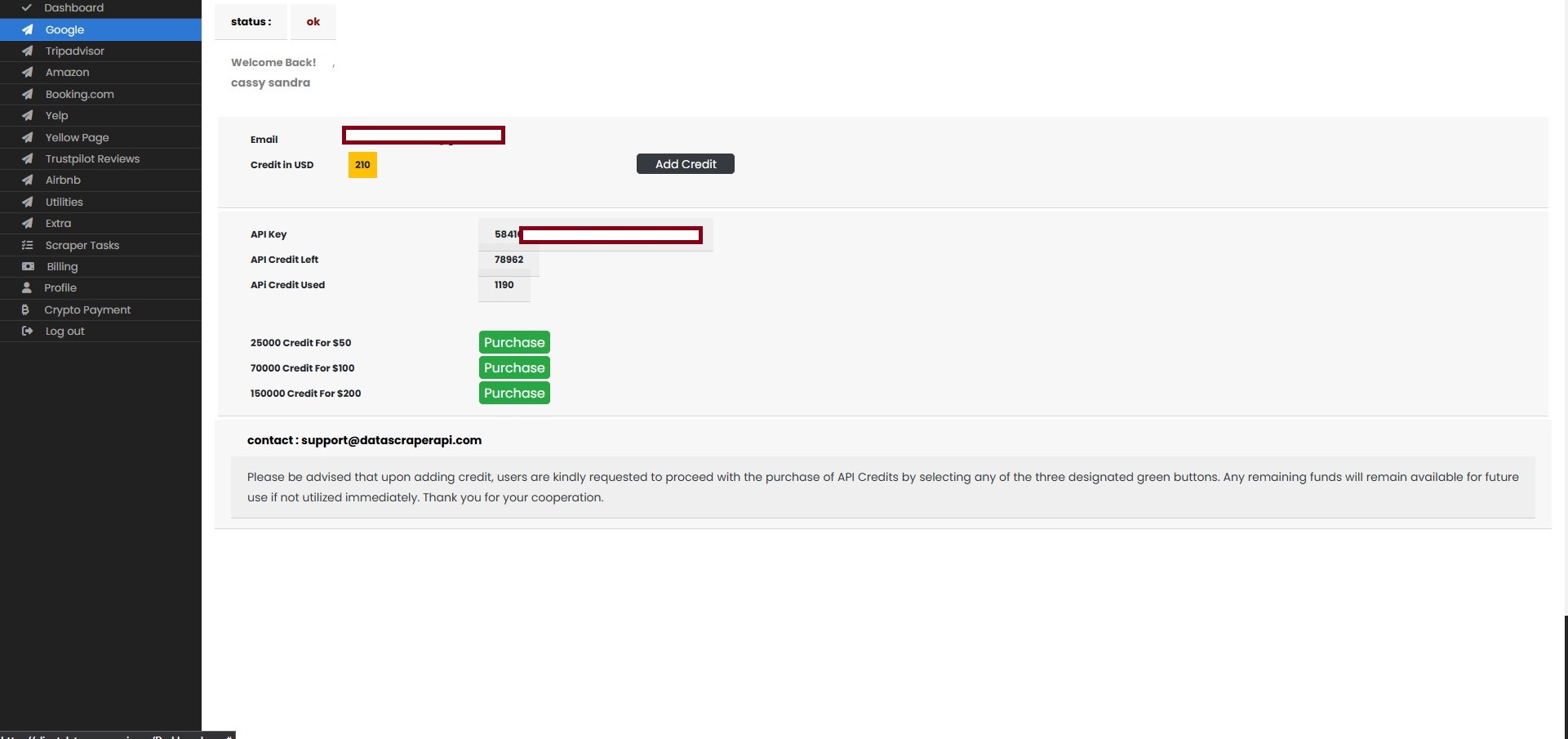
Step 2:
Then user needs to look for airbnb option (left bottom of the menu ) > Airbnb Data Scraper
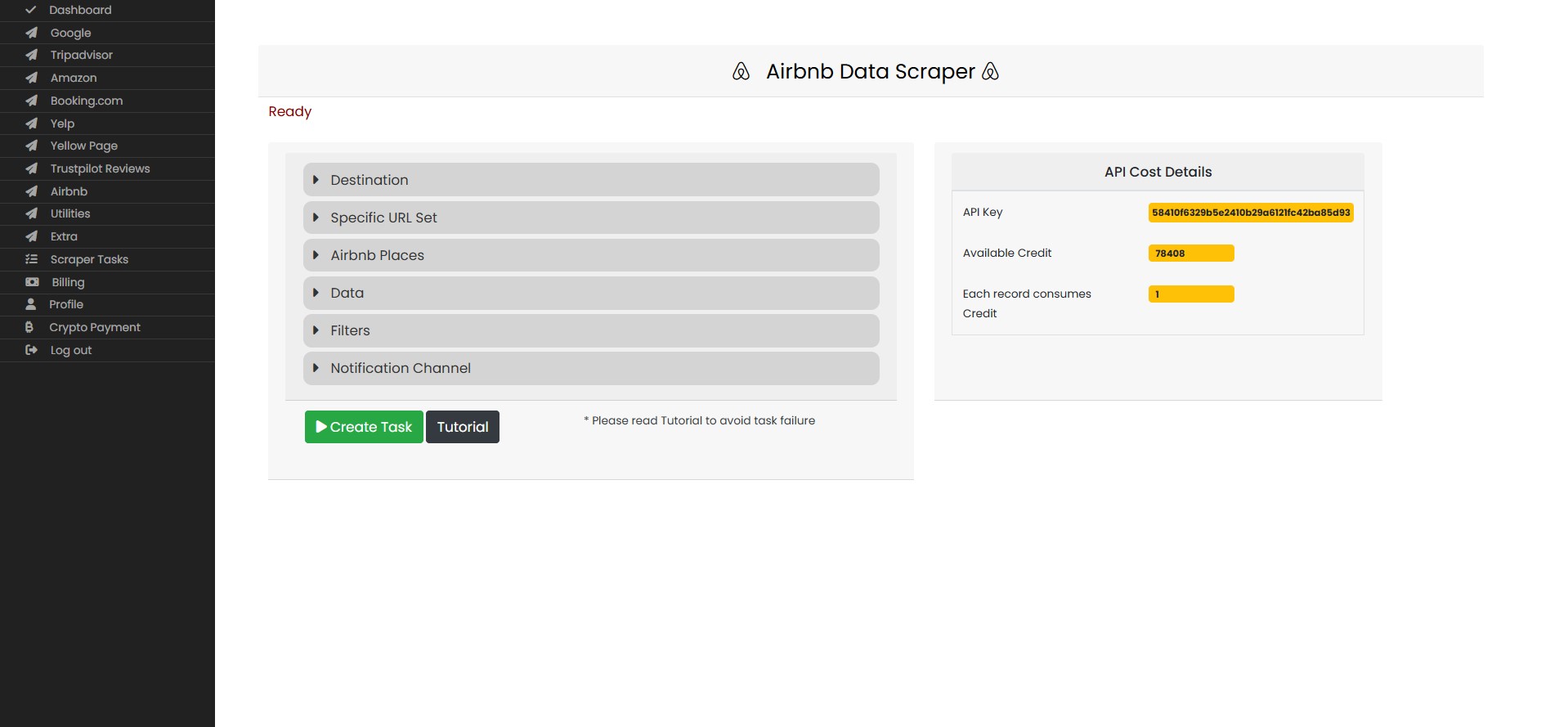
Step 3 :
User then needs to input details required for scraping, such as location, price, date check in, date check out, price currency etc.
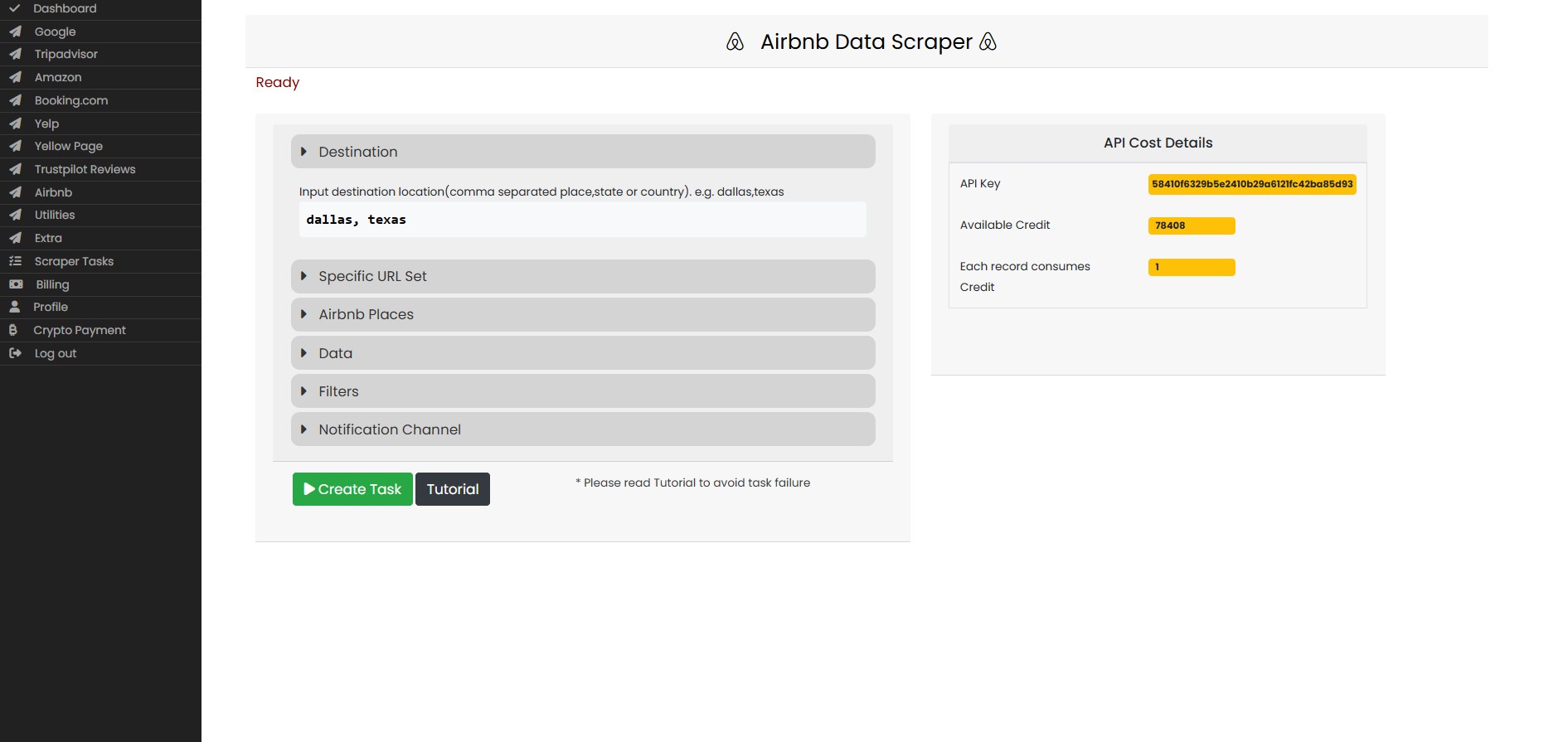
step 4 :
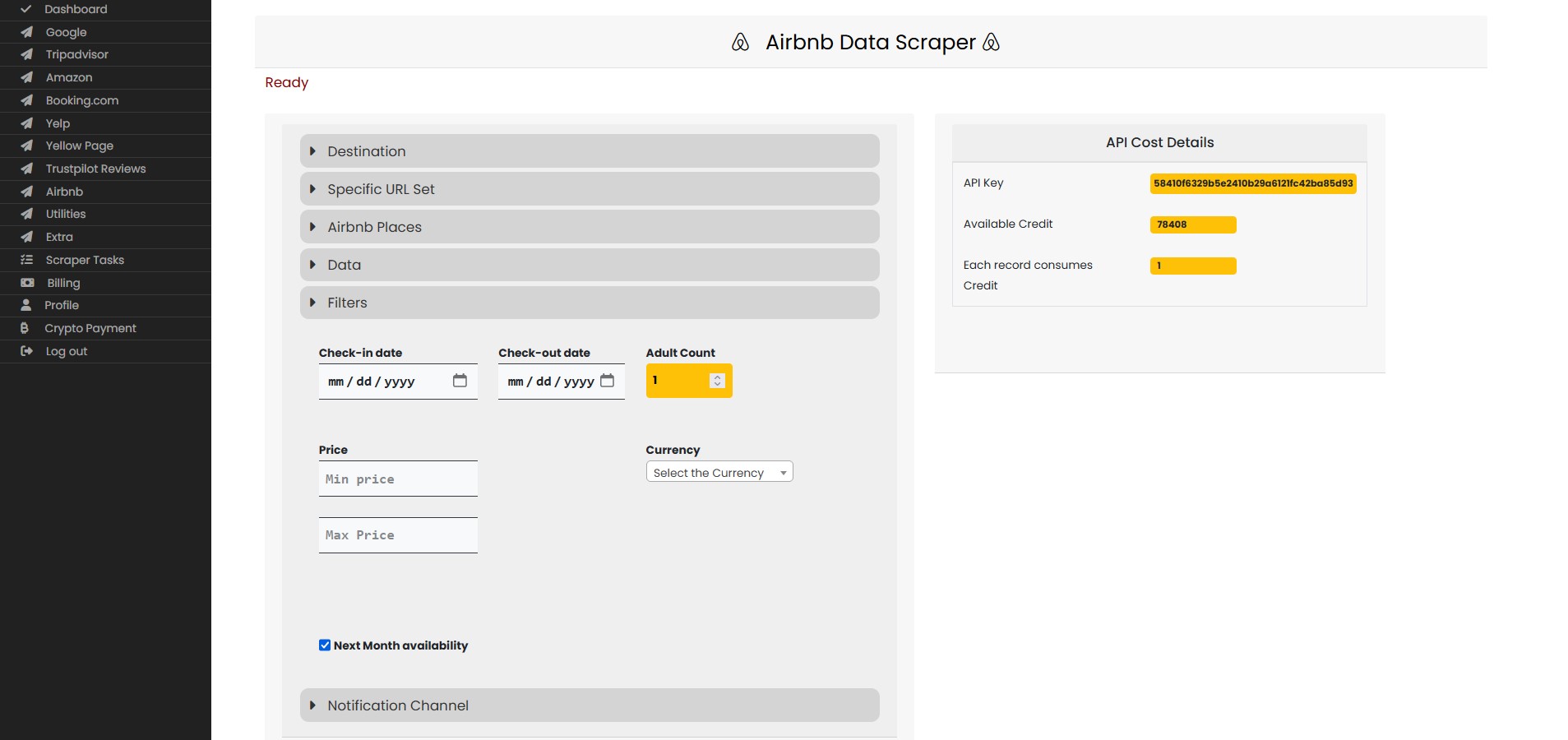
Then create task once everything is put correctly.
To get help, there is a button called Tutorial
Step 5 :
Finally, go to the processor – Scraper Processor
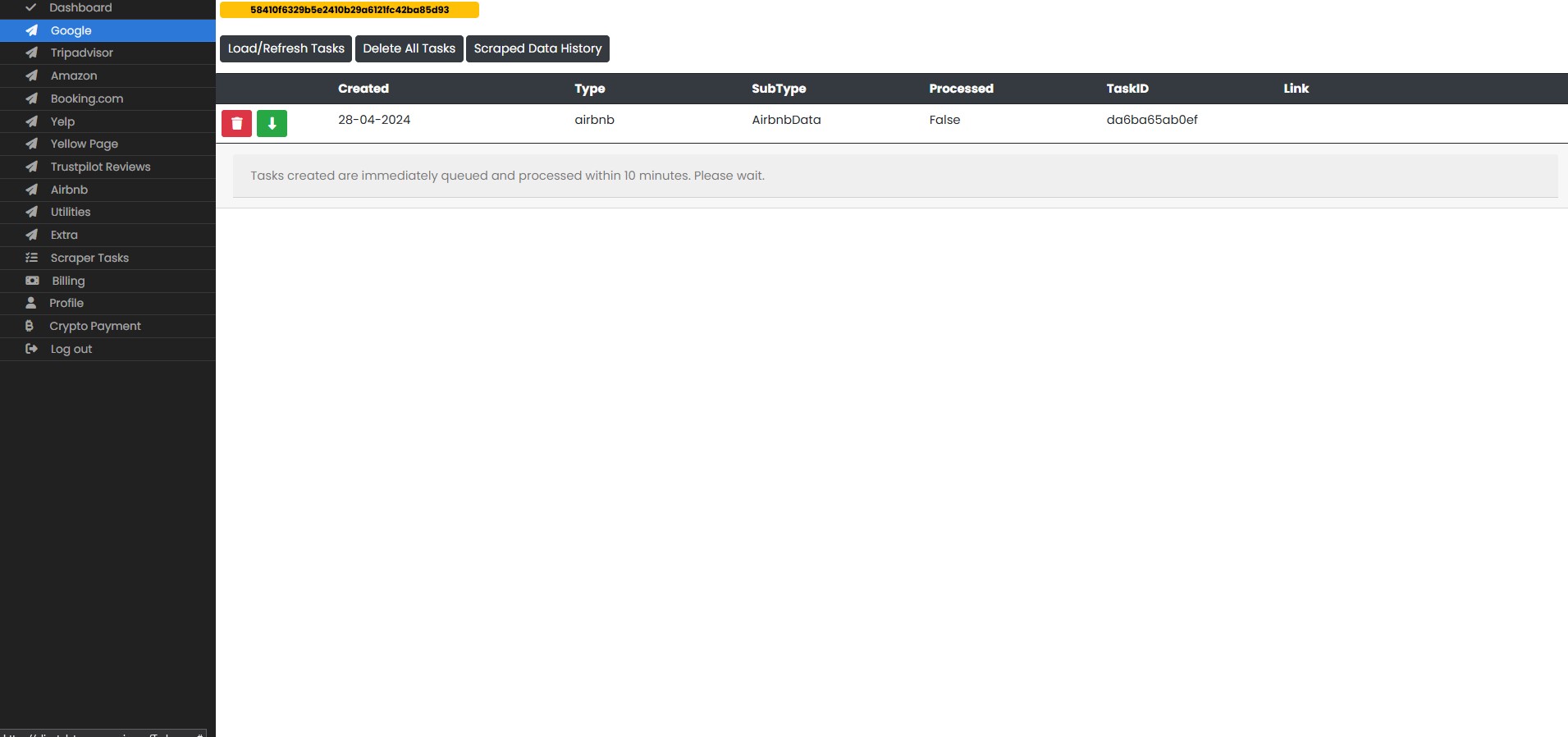
For users with coding experience :
For them, we have API that can be accessed through GET/POST method combination, to create tasks, to retrieve task info, completed data and many more options are there.
The details can be found in Documentation
Data Formats Available
Currently we provide CSV data with proper headers. JSON data can be available on request.
Again,
CSV
JSON (on request via API)
